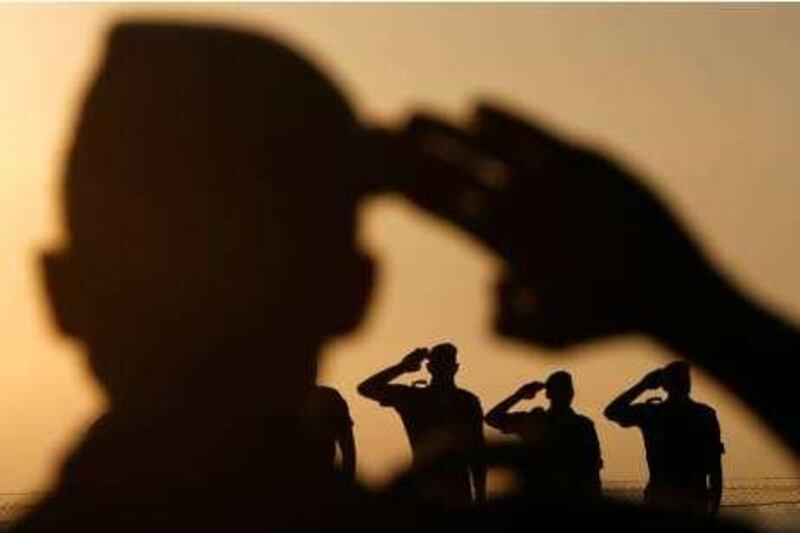BEIRUT // A recent wave of anti-French sentiment among the Hizbollah-led opposition has been cast by critics as an attempt to scuttle a major defence co-operation treaty between France and Lebanon. Parliament failed to come to an agreement on Tuesday to ratify the security treaty, with opposition MPs raising objections to the treaty's vow to combat "terrorism", a term they say they interpret differently to France.
The Lebanese Christian political leader Samir Geagea, who also leads the Lebanese Forces - a Christian militia - and is a vocal critic of Hizbollah, denounced what he said amounted to anti-French "campaigning". "Why are Lebanese parties campaigning against France? When has France taken a stance against Lebanon?" said Mr Geagea, speaking to reporters yesterday. In recent weeks, there have been clashes between pro-Hizbollah residents of southern Lebanon and French members of the United Nations Interim Force in Lebanon (Unifil). Hizbollah has accused the peacekeeping force of carrying out intelligence gathering on behalf of Israel.
The clashes threatened to derail the otherwise peaceful UN presence along the border, but UN and Lebanese officials quickly stepped in to reduce tensions and calm was restored to the area. The tensions are threatening to scuttle the defence cooperation treaty between France and Lebanon, and Mr Geagea said that may be the motive behind them. The security agreement would increase cooperation between France and Lebanon on a range of security issues, including combating organised crime, drug trafficking and money laundering. But it also stipulates cooperation in fighting "terrorism", a term the treaty leaves undefined, much to the annoyance of the pro-Hizbollah opposition in parliament.
The United States, Israel and some members of the European Union have designated Hizbollah as a terrorist organisation. Early incarnations of Hizbollah are widely believed responsible for an attack in 1983 on French peacekeepers in Beirut, as well as a wave of Paris Metro bombings in the early 1990s, although the French government, unlike the Americans, usually treats these incidents as long-forgotten history.
But a Hizbollah-linked lawmaker demanded that the agreement specifically exclude resistance operations by Lebanese and Palestinian groups against Israeli occupation from being defined as terrorism. "We want a text that either clearly defines 'terrorism' as per Lebanese and Arab laws or the omission of the clause that deals with counter-terrorism entirely," Hizbollah MP Hassan Fadlallah told Agence France-Presse yesterday.
"France's definition of terrorism includes Palestinian resistance movements and that clashes with Lebanese law, which is in line with the Arab League's definition," he said. "Without resolving this matter, the accord will not be passed in parliament." But the prime minister, Saad Hariri, said that the agreement in no way imposed France's definition of terrorism on Lebanon. "Obsession with the definition of 'terrorism' is common among all parties," Mr Hariri told the cabinet on Wednesday after the debate on the security treaty failed to come to a vote.
The Lebanon-France treaty does not define "terrorism", Mr Hariri said, adding that the only definition is found in the Arab Convention "which everybody [in Lebanon] has agreed upon". Meanwhile, in an effort to reduce tensions between Unifil and Hizbollah, a top UN official claimed that a Unifil investigation found no evidence to support Israel's claims last week that Hizbollah was violating the 2006 ceasefire agreement and redeploying in the south.
"Unifil has found nothing to support these Israeli claims," UN Special Representative Michael Williams said in an interview published yesterday by the daily Al Akhbar newspaper. "I can confirm that the situation in the south is now much better, than I believe that calm and stability have been returned," he added. @Email:mprothero@thenational.ae





